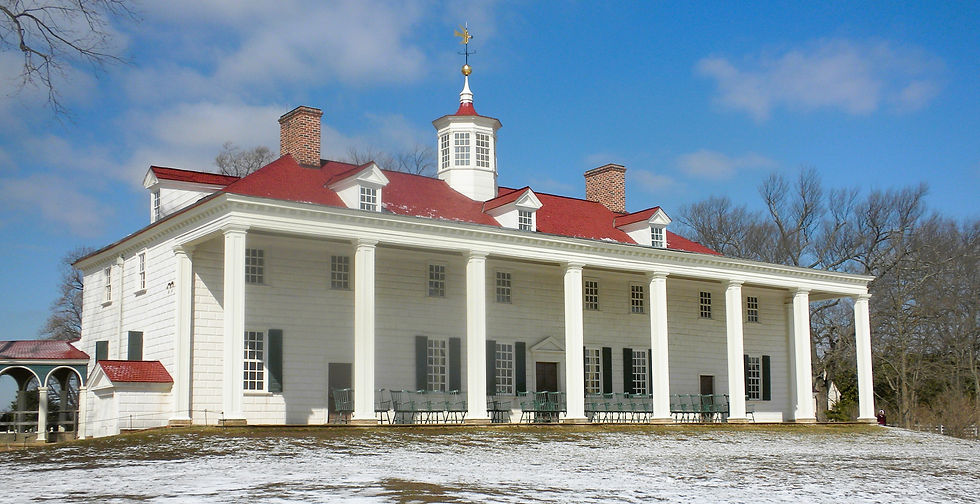Gratitude Friday 10-21-22 – Long Term Recovery
- Bill Stauffer

- Oct 21, 2022
- 4 min read
“Mrs. Marty Mann started her recovery in AA in 1939 (as the first woman, too, by the way – there was even sexism with regards to the disease – women alcoholics were considered to be far more loathsome human beings than male alcoholics, at the time). She went on to found the NCEA the NCADD (National Council on Alcoholism and Drug Dependence).” - A Biography of Mrs Marty Mann - by Sally Brown, David R. Brown

This week I observed an anniversary, moving into recovery year 37! I have lived over 2/3 of my life in recovery. One of the things I have become more aware of in long term recovery is how much I owe early pioneers who devoted their lives to improving education about alcoholism and addiction and expanding access to help. It was not an easy effort. There is no person who did more to accomplish this than Marty Mann. Stigma and sexism were two of the many she faced, and while not gone, she did so much to overcome these barriers and helped save millions of lives.
I am doing a side project (I always have a few side projects) to understand the start of recovery capital in my own community. I have been able to connect the earliest services in my community (which were also some of the earliest services in the nation) to Mrs. Marty Mann the first woman of AA and a member of the LGBTQ+ community back in the 1940s when it was unsafe to be open about sexual identity. She was a fearless and gifted leader, and I am alive because of what she did. Our history and how our pioneers worked to change things is something to celebrate this recovery anniversary!
Modern recovery history in America starts with AA. The development of services through the 1950s and beyond closely parallel AA. Some of what I found links on Silkworth.net to early meetings that started here in the Lehigh Valley in the mid-1940s, including one that met in a hotel room in the Hotel Traylor which is a few blocks from my home. I have reason to believe that some of the people mentioned on that link connect to one of the first Alcohol Committees in the US, which operated across the street from where the Bethlehem Public Library. My hometown. I found reference to it in a pamphlet authored by Marty Mann and a page in a 1955 Bethlehem PA phone book. Those two references and this photo are to the best of my knowledge all that remains of what we know about the Bethlehem Committee on Alcoholism. It deserves space in a gratitude Friday post. These were the building blocks upon which all services in my community came from. They laid the foundation that the door I walked through rested on.
The short version of my recovery story is that when I sought help, it was there. I got connected to a recovery community who saved my own life. Paying that debt forward is a huge part of my life. Like millions of other Americans, it is part of my recovery identity to help others. Having a recovery identity essentially means that recovery changed the way that I think and act and how I see myself fitting into the world I live in. In short, recovery changed everything in my life.
This is a common experience when people like me get into recovery. It is the most remarkable fact that often persons who emerge out of addiction become focused on helping others. I am grateful to be one of many who wake up every day and do what they can to move the ball towards this goal. We should double down on getting more people in recovery as it pays dividends in the healing of our communities. We are part of the answer, not the problem.
Last evening, I celebrated my recovery by bringing the movie “Tipping the Pain Scale” to Tunkhannock PA. Today I traveled to show it in New Kensington PA. Two communities on opposite ends of our state. I am grateful for Greg Williams and everyone who helped with this movie for the messages of compassion to the national conversation.
It had been a long road. I am grateful for the ugly things that happened to me in my life during those dark days that led me into recovery. I have often wondered what would have happened to me had things not occurred the way that they did. The truth is that which seemed my darkest hour was the beginning of everything I hold dear in my life. I am grateful for the dark days in which the seeds of resilience were hidden. I have been gifted many opportunities in this world, and I try to use what was given to me to support others. That I am alive and did not ruin my cognition or physical health in addiction is an outright gift. Facing a terminal condition at age 21 and having the opportunity to reevaluate my life and my priorities was a bonus. The more I learn about how much effort has gone in to ensuring that something was there for me when I needed it, the more determined I get to help pay it forward and help do the same for the next generation.
At best, on the course I was on I would have died early and contributed little to my community. At worst I would have done even more damage in broken lives and pain to the people around me. I am grateful that things unfolded in a far different way in my life. I am so grateful to be alive and have a life. Grateful to see the ripple effect of recovery in my community. What are you grateful for today?










Comments